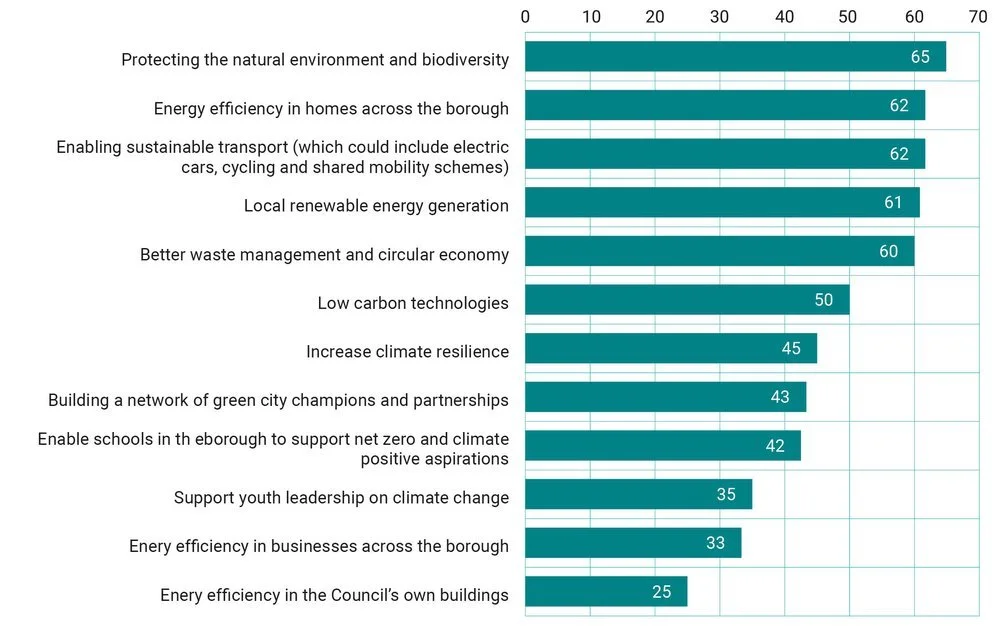How do people choose between different energy providers & products today?
What motivates people to change their behaviours around energy use?
How do people respond to current SLES concepts?
What did we learn about customers views on low carbon energy?
With a people-centred approach in mind Southend City Council started a wider engagement exercise to try to better understand where the communities in Southend are on the journey to net zero, particularly concerning their views of climate change and smart local energy systems.
The questions in the survey were designed to reveal the respondent’s general awareness and views on climate change, willingness to accept new technologies, ability to make changes to their homes, and invite further engagement with the council on the issue of climate.
Results showed that residents are concerned about energy but not equally concerned about pollution and waste.
FutureGov also carried out research into energy products as part of REMeDY and this showed a wide range of needs and concerns shown below.
1 - People make choices based on domestic economics (spreading budgets and managing household use). However, most providers speak in market economic terms (kWh and tariffs) - at odds with how users see energy.
2 - Second to budgeting, customer service & ease of use are essential criteria people use to choose between providers.
3 - People have different needs and preferences at different life stages and want to be able to select the most suited option.
4 - People are creatures of habit and comfort but can be open to change with the right prompts/incentives. When it comes to using energy, people are primarily motivated by cost and a sense of duty to not be wasteful, rather than macro narratives around climate change.
5 - While supportive of the idea of renewable energy, people have questions about the feasibility & cost of producing energy locally.
6 - People appreciate smart technology’s ability to automate tasks & present information, but are sceptical of automation.
7 - Most people would be concerned when one company has an unchecked monopoly, especially if it’s an unproven model.
People were not inclined to be wasteful with energy. However, there was some scepticism about the promises of automation and questions about the cost effectiveness of local energy production. REMeDY type solutions would integrate many of the automation issues for new low carbon demands in a way that would suit those not looking to manage complexity. It was only a small number of the people interviewed that were engaged and technically savvy enough to be interested in how they optimised their consumption.

